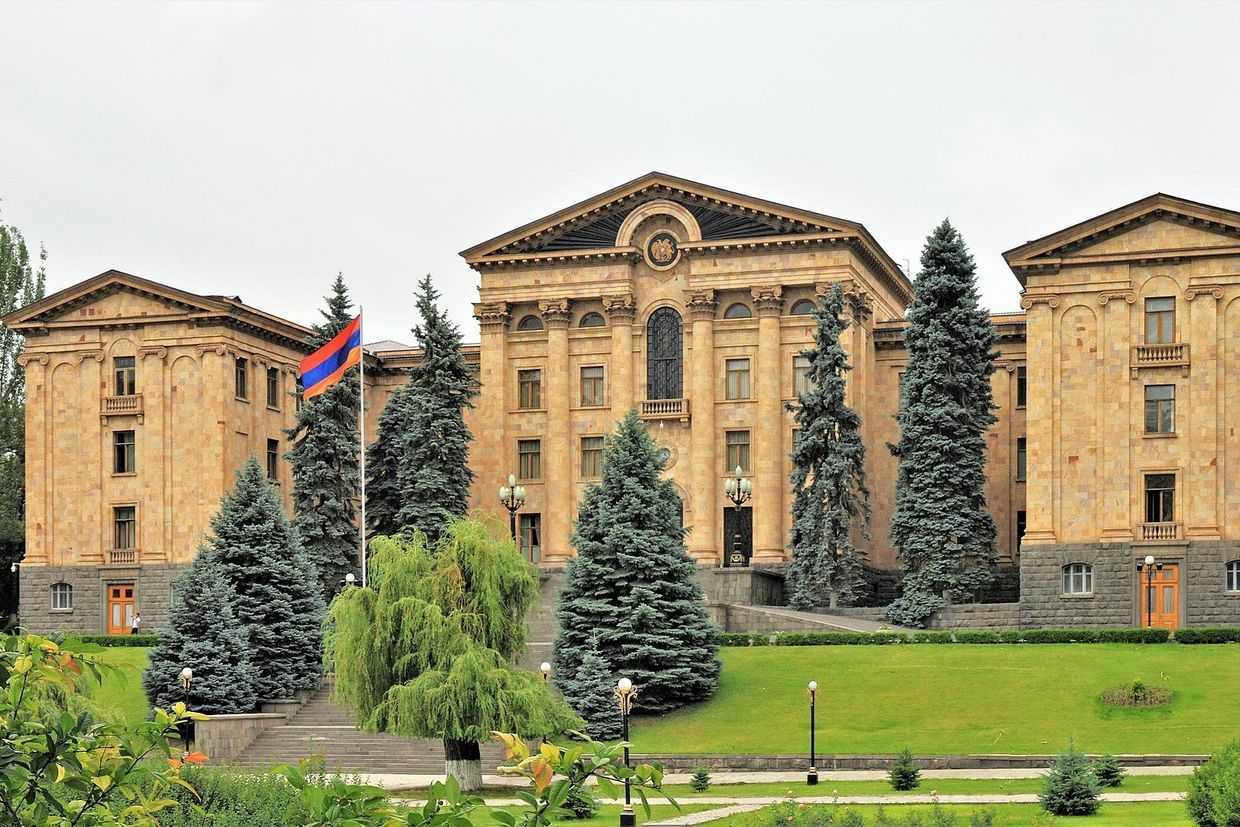
Last week, an international science festival landed in Yerevan. With speakers including the moonwalker from Apollo 16, the ‘father of the iPod’ Tony Fadell, scientists from NASA and SpaceX, Nobel laureates, and world-famous musicians, the Starmus festival’s organisers hope it will have long-lasting impacts in Armenia.
Yerevan’s Freedom Square has seen a lot over the years. Sat at the base of the city’s iconic Cascade, it has been one of Yerevan’s social hubs, the site of revolution, and, earlier this year, home to a month and a half of anti-government protests.
But for the last week, the square has had a distinctly different atmosphere. Covered in futuristic pavilions, crowds of visitors have been looking to the stars as the Starmus international science festival took over the city centre.
Hosting a festival of this scale and calibre is no small matter for Armenia. Previously held in Switzerland, Norway, and the Canary Islands, this year’s festival is the first time it has taken place in Yerevan, and the largest the festival has ever been.
With speakers including Nobel laureates, astronauts, rock legends, and the inventor of the iPod, and thousands of participants over the five days, this is a significant coup for Yerevan. Attendees and organisers alike hope that the impacts of the festival will reach beyond its closing date and drive the development of Armenia’s science and tech scene.
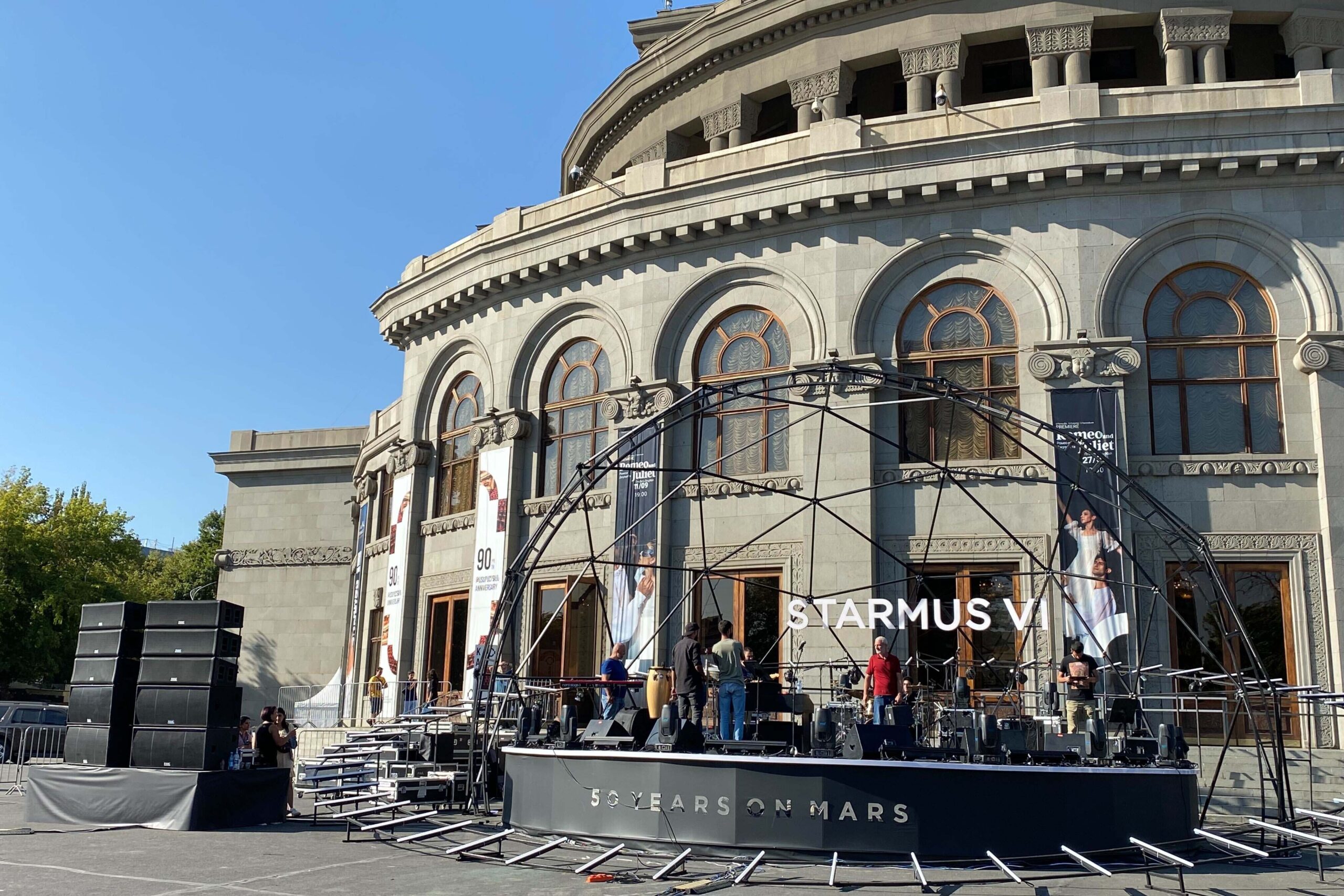
Walking amongst the stars
On Freedom Square, a man in a NASA uniform walks towards a pavilion selling Starmus-themed books and t-shirts. The salespeople glance his way, then do a double-take.
‘Are you actually from NASA?’, a man at the stand exclaims. ‘I thought people like you didn’t walk around here!’
Arbi Karapetian is, indeed, from NASA — he’s a Jet Propulsion Laboratory Section Manager, and giving a lecture at the main event. But today his work is a lot more down-to-earth, as he’s busy chatting to visitors and handing out NASA stickers.
The next day, OC Media spoke to Karapetian at the Karen Demirchyan sports and concert complex, one of the biggest sports and concert halls in Armenia, and the main venue for the week-long festival.
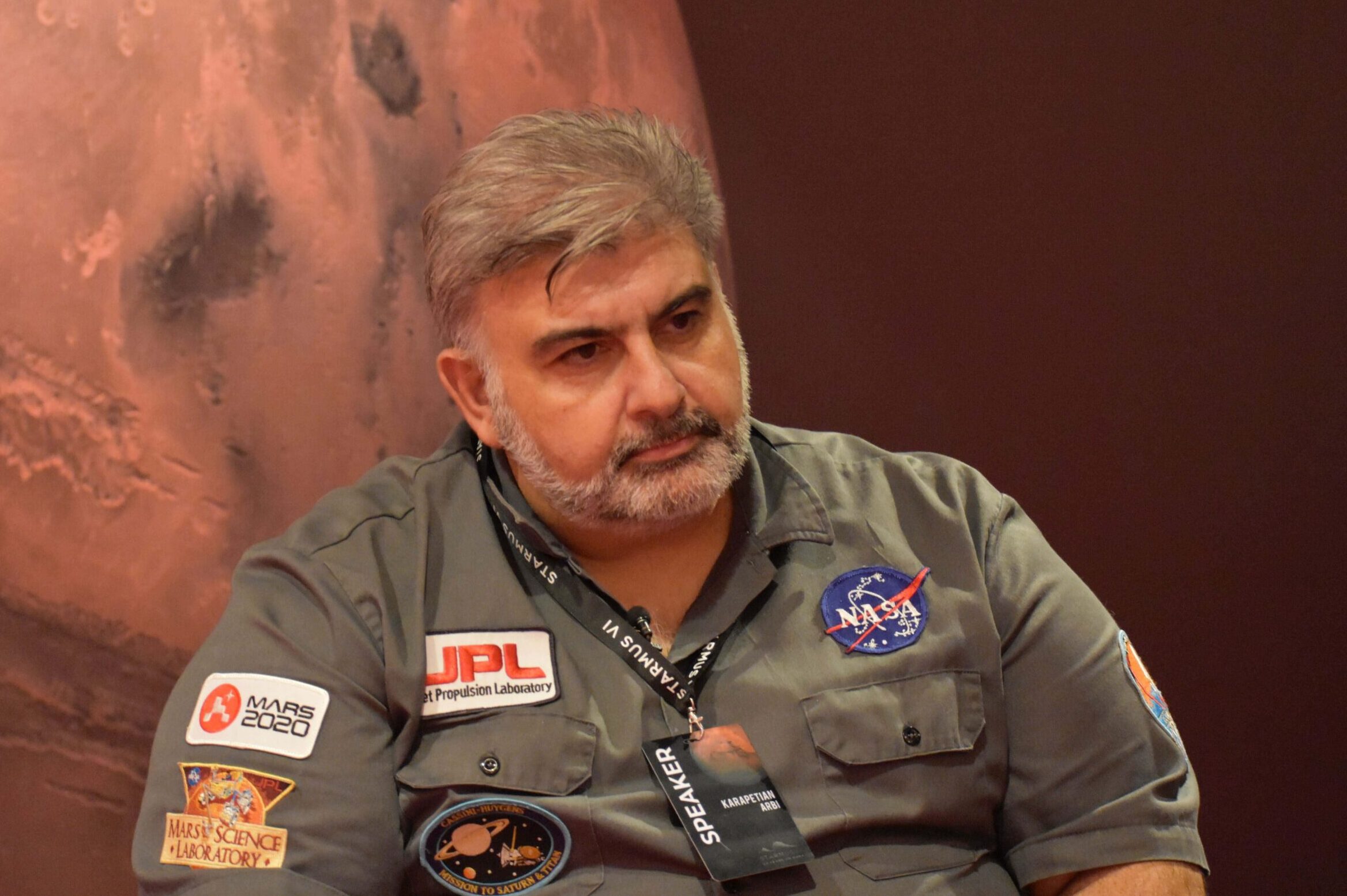
Karapetian was born in Iran — the son of a survivor of the Armenian genocide and an Iranian-Armenian — and moved to the US as a teenager. He became a successful NASA engineer, but has kept in touch with his Armenian roots.
‘I think there’s a huge amount of thirst in the youth in Armenia for science and tech and I think that’s really good’, Karapetian told OC Media. ‘I believe that any nation that wants to improve in the future must invest in science and technology. You can’t just invest in today, you have to invest in tomorrow too, there’s no other option’.
Karapetian sees Starmus as an indirect investment in Armenia’s scientific future.
The pavilions on Freedom Square celebrate Armenia’s bustling tech scene, with one hosting the first Armenian AI robot, who helps entertain children and the elderly at hospitals and special care facilities, while others are home to a startup using technology to help people with disabilities, an AI-based security camera firm, and a company that makes telescopes.
Karapetian believes that a large and wide-reaching event like Starmus will have a broad impact, because inspiring people has a ‘chain effect’.
Investing in Armenia’s future
The speeches at the event’s opening ceremony echoed this idea.
Garik Israelian, an astrophysicist and the co-founder of Starmus, said that ‘science and technologies are the future of a small country like Armenia’.
‘This is a crucial moment in Armenia’s history, bringing a festival like Starmus to this small country and inspiring a new generation of scientists and artists’, he added.
Armenian Prime Minister Nikol Pashinyan further stated that the goals of the festival matched the strategic vision of the Armenian government, which wants more young people to engage with science, research, and technology. He cited that as one of the main reasons for hosting the event.
[Read more on OC Media: Armenia’s ageing sciences: can the demographic decline be reversed?]
‘We want knowing and creating more to become the mood of everyone in Armenia.’
Pashinyan noted that in 2022 there had been an increase of over 80% in the country’s science budget, allocated to state scientific institutions and programmes supporting young scientists and researchers, as proof of Armenia’s commitment to developing technology and science in the country.
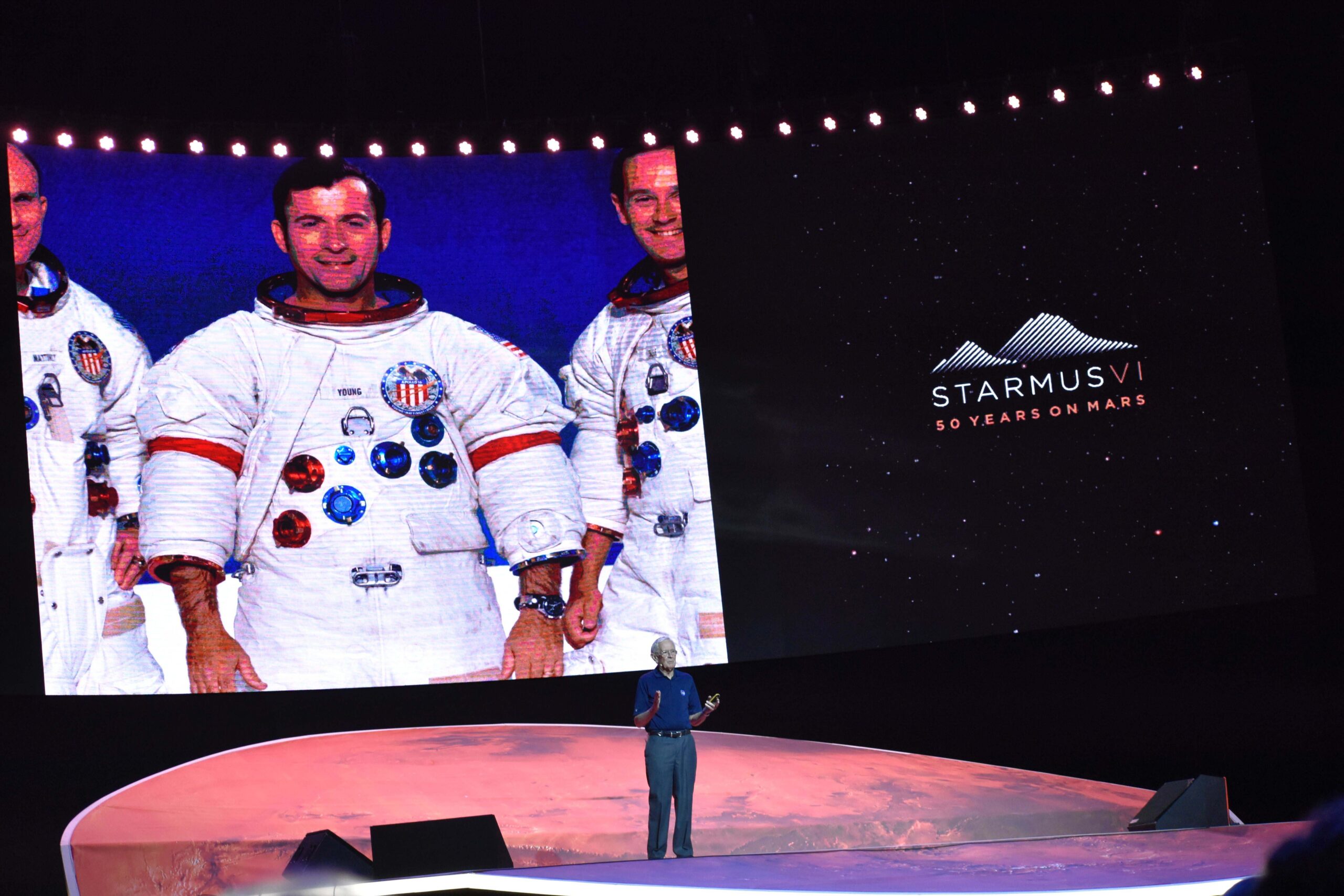
Opening up new worlds
A major aim of the festival is to popularise science and make it more accessible. This is part of the motivation behind the festival’s interdisciplinary approach — stadium-scale concerts by big names including Queen guitarist and astronomer Brian May and System of a Down’s Serj Tankian sit alongside lectures, discussions, and presentations by astronomers, astronauts, and tech entrepreneurs.
But making science accessible can also take place at a much more individual level.
Back at Freedom Square, Bethany Ehlmann, a planetary scientist from the California Institute of Technology, is also taking the opportunity to explore the stands and talk to visitors.
She is in Yerevan to give a lecture on Mars and her studies of the Red Planet, and speaks with enthusiasm about the opportunities for interdisciplinary engagement at the festival.
‘It’s been inspiring to talk to musicians, to engage with scientists and engineers who are on top of their field and are so excited about what they’re doing’, she told OC Media. ‘And also to talk to people who come up to me and want to talk about these topics. I found Armenia to be very welcoming.’
While some attendees have just flown in for the week, others have been working to promote science in Armenia since long before the opening chords rang out.
Harutyun Stepanyan is one of the co-founders of a well-known Facebook page in Armenia called “Տիեզերք/Space”, that shares news about space and astronomy. He believes that science communication is something that Armenia really needs.
He also believes in the long-term impacts of an event like Starmus.
‘It’ll be visible in, for example, five or ten years, when the children or young people who took part in the conferences or the science camp choose science as a profession.’
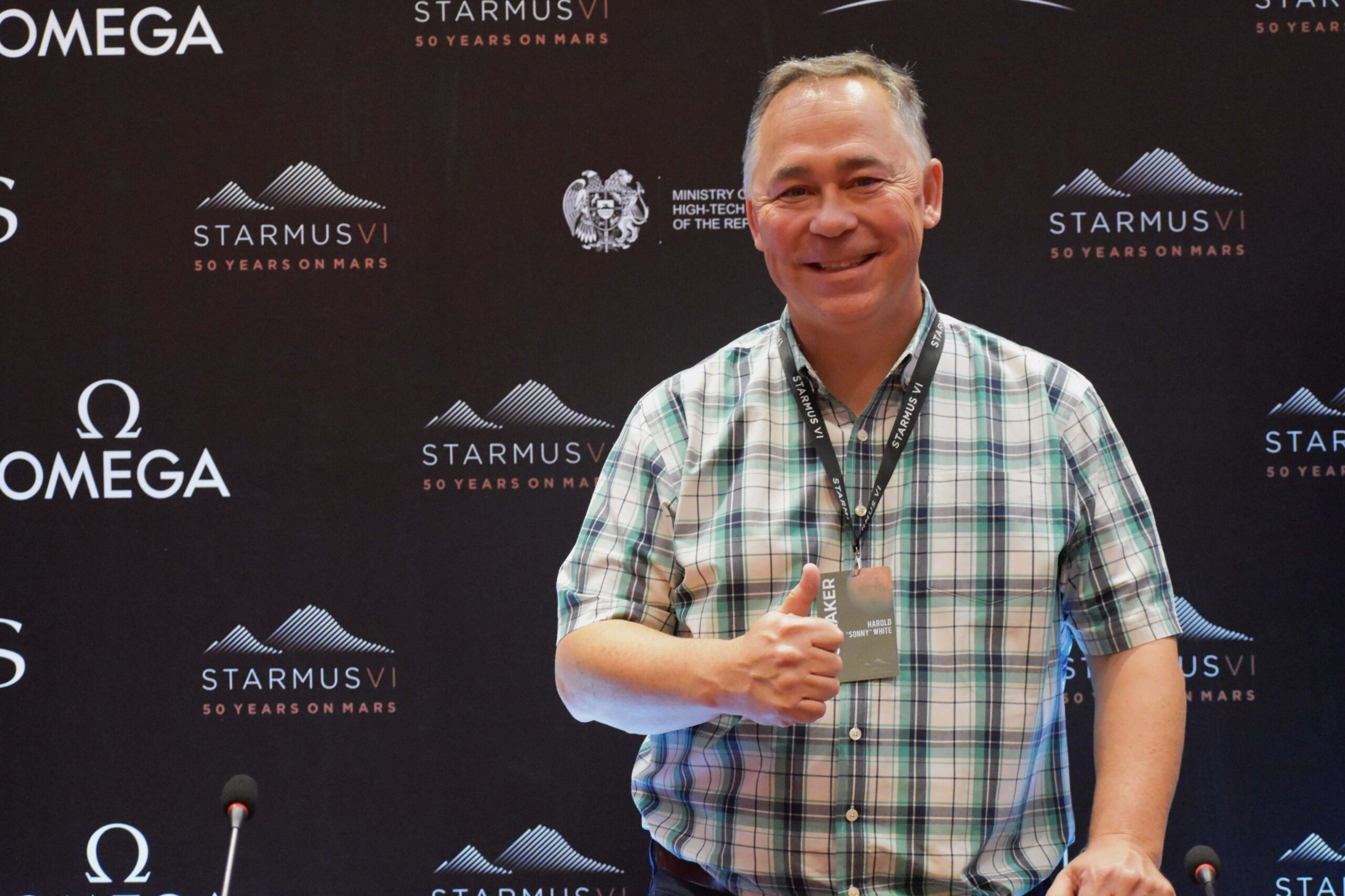
As we talk, several young people come up to talk to Harutyun, and tell him how much they like his social media pages. Harutyun says, with a smile, that it is probably the only one focused on covering space and related sciences in Armenia.
And since a Facebook page with around 60 thousand followers can inspire people and get them interested in astronomy and other sciences, then a world-class festival like Starmus should be able to do even more, suggests Harutyun.
He may be right. After two years on hold due to the coronavirus pandemic, the Starmus festival has made a triumphant return, and given Yerevan a burst of astronomic energy.
‘To keep it short, holding the festival in Armenia was a success,’ says Harutyun.
Where Starmus will take place next year is not yet clear, and neither is the future of people in space.
When asked about what voyages to the stars humanity could expect in coming years, aerospace engineer Harold ‘Sonny’ White, famous for his dream of discovering ‘faster-than-light’ travel, takes the long view. He tells OC Media that, in centuries past, people would start building a structure knowing they would not live to see it completed in their lifetimes.
He believes that we should take a similar approach when considering science and technological progress.
‘It’s important to work not only here and now but also for the next generations’.

